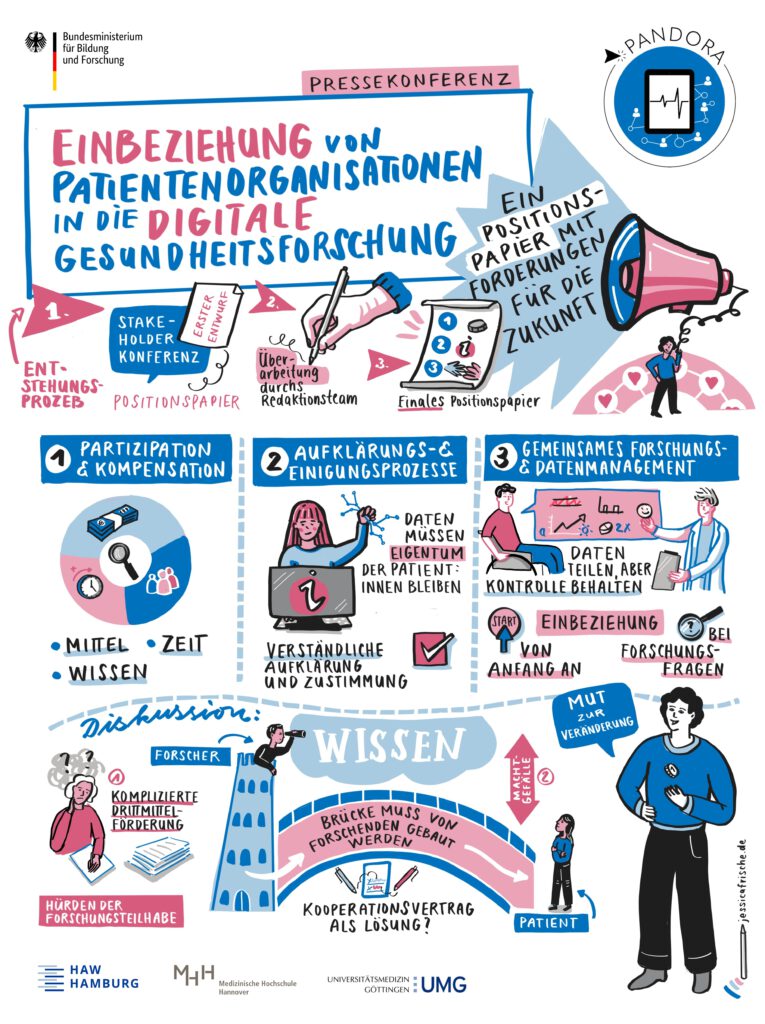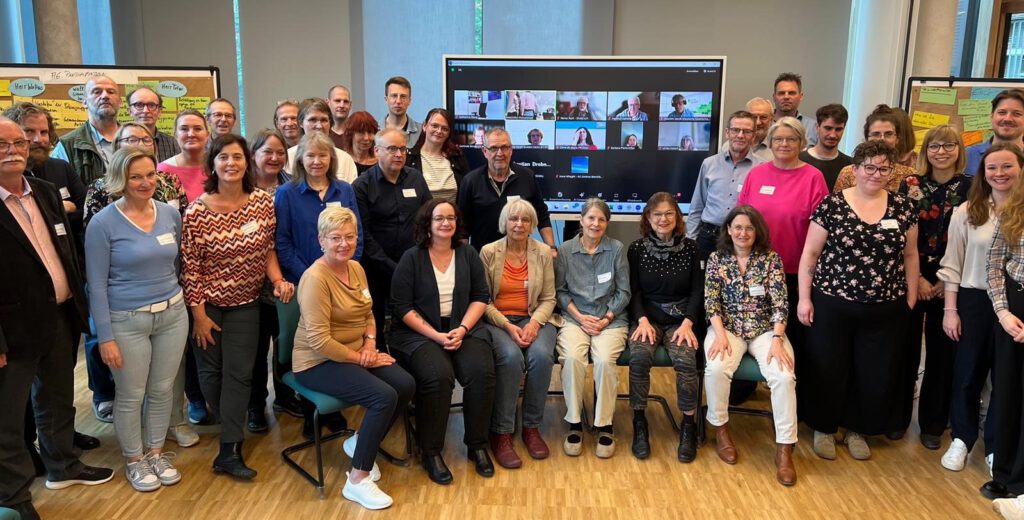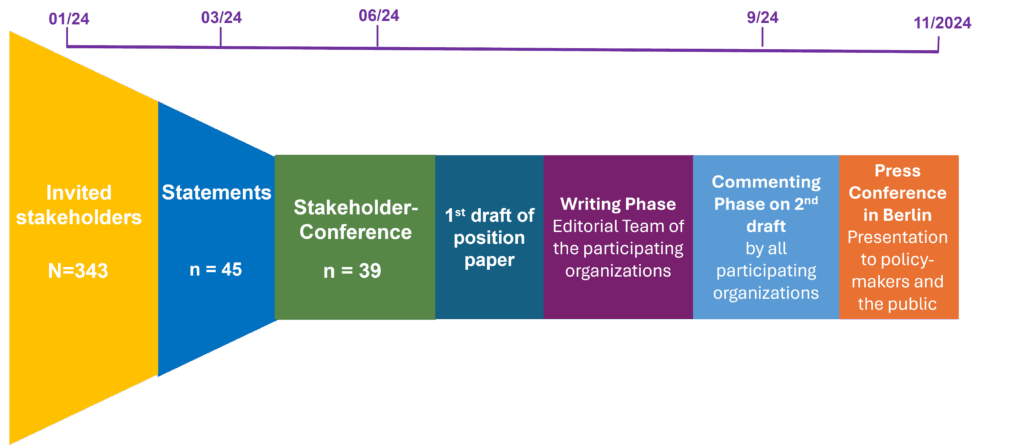The Position Paper
Involvement of patient organisations in digital health research
A positions paper on the current status with demands for the future
Click here to get to the position paper


Share the Position Paper!
- Share this position paper on your website, in your newsletter, or through personal recommendations.
- Take the opportunity to highlight this paper at annual meetings, assemblies, or workshops.
- Feel free to use this position paper as a resource when planning your research projects.
The Position Paper
The position paper, endorsed by 39 patient and self-help organisations, highlights how the organisations should be involved in research within participatory research projects — with mutual respect and appreciation. In this way, the digitalisation of healthcare and related research can be shaped in alignment with the needs of those affected.
The position paper was independently developed by representatives of patient and self-help organisations through a consensus-oriented process (see Fig. 1).

The Demands Outlined in the Position Paper
The demands of the patient organisations and self-help organisations directed towards the scientific community and health policy-makers include, among others:
- To ensure success and establish a minimum level of cooperation between patients and researchers, patients and their representatives must be actively involved in digital transformation processes from the very beginning.
- The participation of patient organisations, affected individuals, and their relatives in the implementation of digital research processes must be designed realistically by all parties involved.
- Adequate professional, financial, human, structural, and technical resources are essential prerequisites for the involvement of patient organisations.
- Greater attention must be paid to vulnerable groups, and stigmatisation and discrimination must be prevented.
Development of the Position Paper – Extensive Voluntary Work by Many Hands
The development of the position paper involved a great deal of voluntary work by patient organisations (PO) and self-help organisations (SHO). The process was carried out through the following steps:
PO and SHO define their positions within their organisations
A total of 45 organisations developed their positions on various aspects of research participation in the digitalisation of healthcare within their respective organisations.
To support this process, the PANDORA research network team sent guiding questions to all PO and SHO across Germany, collected their responses, and structured the feedback as a basis for further discussions.
Patient organisations discuss and identify common positions and differences
On 3–4 June 2024, 39 representatives of PO and SHO from across Germany gathered at the Körber Haus in Hamburg for the stakeholder conference “Shaping Digital Health Research Together.”
The PANDORA research team provided organisational and facilitation support for the event. Over the course of two days, participants engaged in intensive discussions within working groups on key topics such as: informed consent and information processes, research data management, participation in research, digital inclusion, and relevant ethical values for research involvement.
During these sessions, they developed a first draft of the position paper, defining common positions and clearly documenting areas of disagreement.
Editorial team finalises the draft of the position paper
An editorial team (see Fig. 2), consisting of four representatives elected from PO and SHO, took on the responsibility of leading the editorial work and finalising the position paper. The following milestones marked this highly labour-intensive process leading to the final version:
Version history:
- 04 June 2024 – First draft of the position paper created
- 11 August 2024 – Second draft prepared by PANDORA, aligned with the working groups of the stakeholder conference
- 26 August 2024 – Draft sent to PO/SHO for comments
- 15 October 2024 – Final approval by PO/SHO
- 27 October 2024 – Final changes incorporated
- 12 November 2024 – Closing and press conference in Berlin


Fig. 4: Process of developing the position paper through a discourse procedure.
The Position Paper Presented in Berlin
On 12 November 2024, the position paper on “Involvement of patient organisations in digital health research” was presented at the State Representation in Berlin during a press conference and panel discussion.
The conference “Ethics of Participatory Digital Health Research and Care”, which provided the framework for this event, also marked the conclusion of the PANDORA research project.
Representatives of both the editorial team and the PANDORA research network took part in the press conference.
Press Review (German)
HAW Hamburg:
Pressemitteilung | Forschung zu digitalen Technologien aus Sicht der Patient*innen
idw – Informationsdienst Wissenschaft (über Pressestelle HAW Hamburg)
Pressemitteilung | Forschung zu digitalen Technologien aus Sicht der Patient*innen
Ärzteblatt:
Gesundheit-adhoc.de:
Gerechte-gesundheit.de Das Magazin zur Verteilungsdebatte
News | Patientenbeteiligung: Nicht erkanntes Potenzial | Gerechte Gesundheit
Interviews | Interview des Monats mit Thomas Duda | Gerechte Gesundheit
Wider die Scheinpartizipation. Digitale Gesundheitsforschung mit Patienten gestalten.